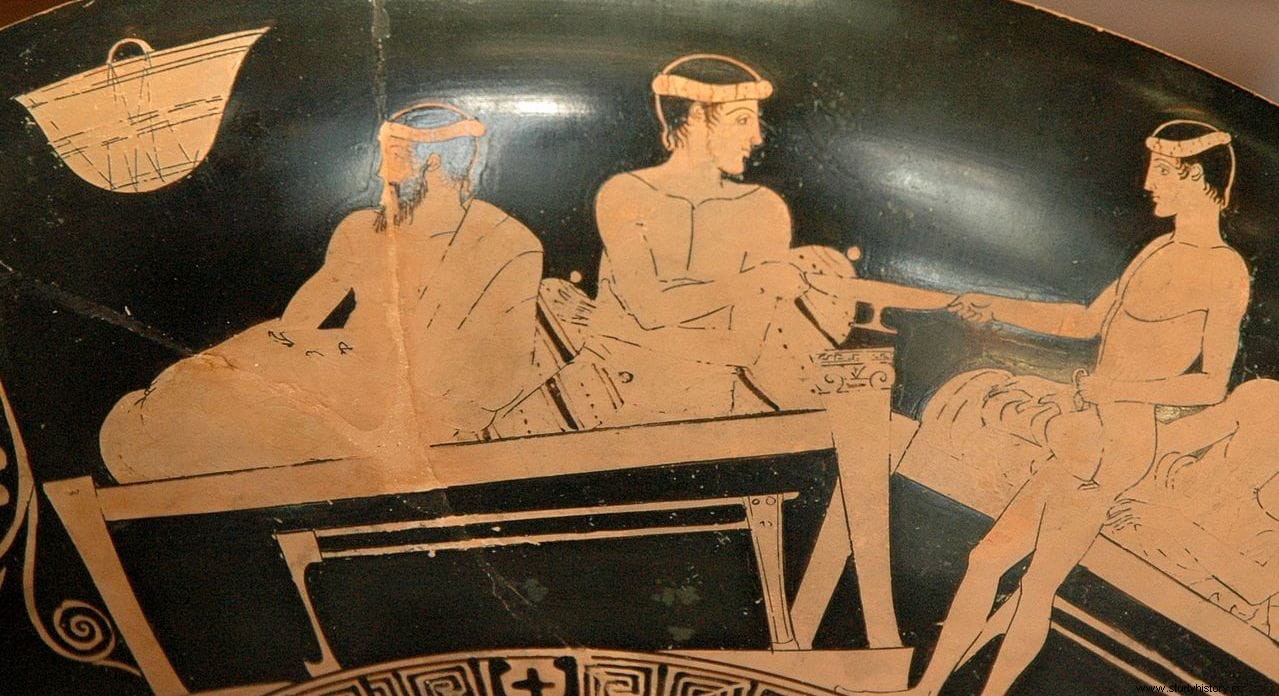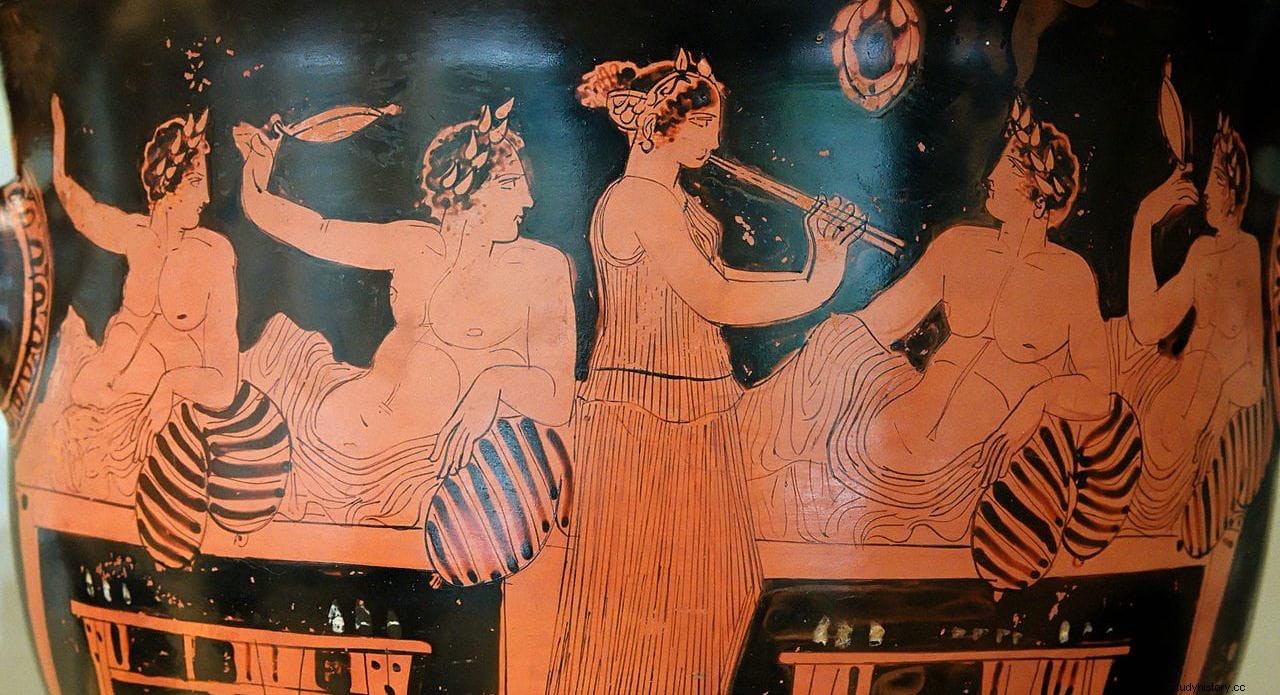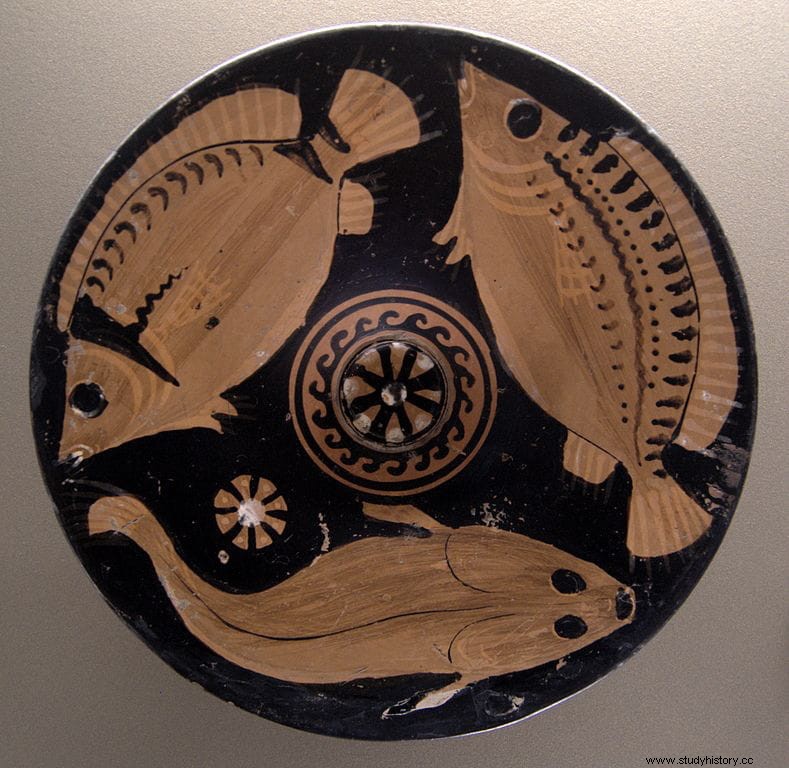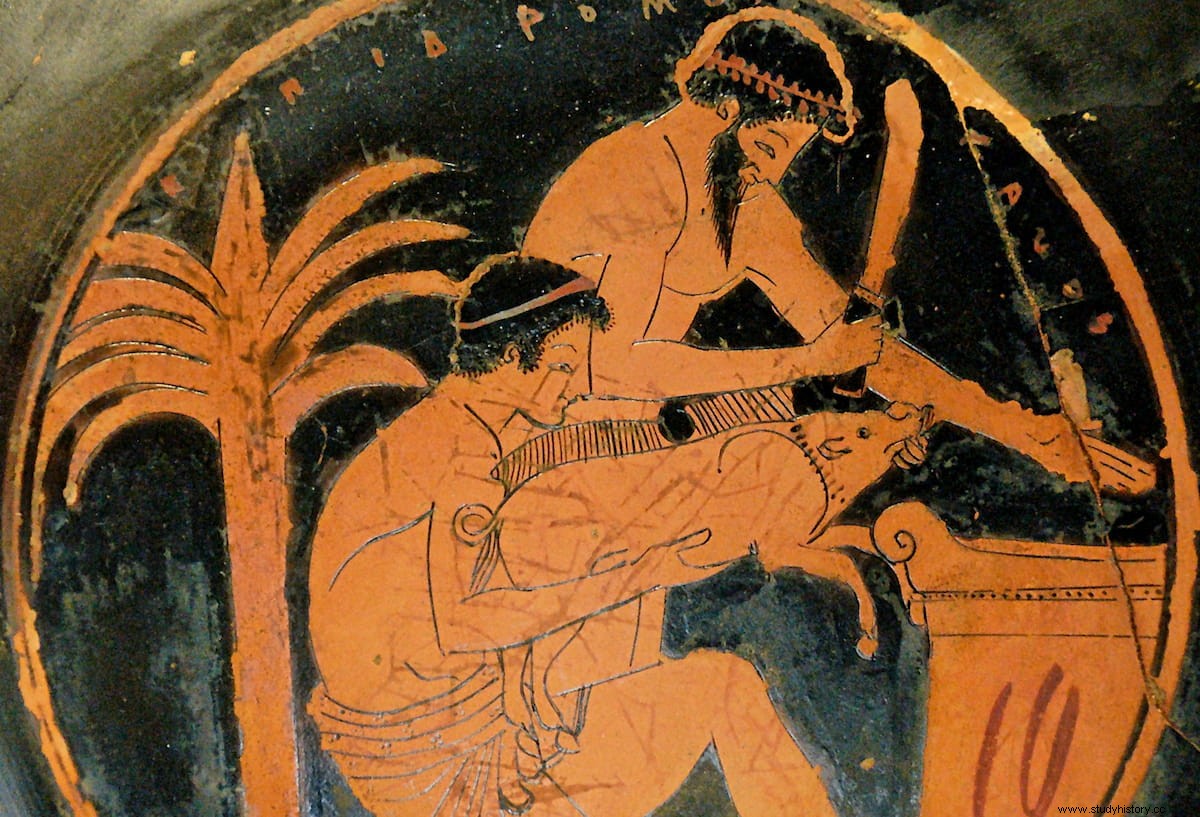The ancient Greeks had in great consideration everything related to food, and especially with food as a social act of meeting, whether they were banquets or symposiums in which each one contributed a part of the food or in private homes.
The main meal of the day for the Greeks is what the Romans later called dinner , that is, the one that was taken at the eighth or ninth hour of the day. The Greeks did not have cutlery (except knives for meat) or napkins, they ate with their hands except soups and other liquids, for which they used a piece of bread hollowed out in the shape of a spoon.
At the end they wiped their fingers on some pieces of bread that were then thrown to the dogs.

The food was generally prepared by the mistress of the house or by the slaves under her direction, but on special occasions professional cooks were hired, of whom there seem to have been a large number as they are frequently mentioned by the comic poets. Those who knew all the refinements and secrets of their art were in great demand throughout Greece, and they traveled from one city to another preparing their specialties.

The most famous and reputable were the Sicilian chefs, who even wrote cookbooks. Plato mentions that of Mythecus (who is said to have worked in Sparta but was expelled by his bad influence) in his Gorgias .
His work, titled Ὀψαρτυτικός (Culinary Art), is the oldest known cookbook, written in the late 5th century BC. Only one recipe has come down to us from him, collected by Athenaeus at his Scholars' Banquet , which explains how to prepare the fish called Cinta (Cepola macrophthalma ):
However, the most famous work of all is the treatise on gastronomy by the also Sicilian Arquéstrato. Written in the middle of the 4th century BC. various titles are attributed to it:Hedypatheia (Pleasures), Gastronomy , Gastrology , or Deipnology . Only 56 fragments of it have been preserved with a total of 328 verses, all of them collected by Athenaeus of Naucratis in his Scholars' Banquet written in Rome in the 3rd century AD
Archestrato's work is composed in the form of an epic poem, and is presented as a gastronomic journey through the Mediterranean. It starts like this:

It contains a section on starters, and another on wine, although most of the work focuses on the preparation of fish. Only three types of meat appear among the preserved fragments:hare, goose and sow belly. On the preparation of hare, which was popular among Athenian hunters according to Xenophon, he offers the following recipe:
He also recommended completely avoiding recipes that included rich sauces or too much cheese or oil. These potent cheese or herb based sauces were only to be added to inferior quality fish.
The better the quality of the raw product, the fewer flavors needed to be added. He always preferred a simple cooking, boiled, roasted or grilled, with the lightest seasonings and adding oil.
Archestratus traveled throughout the Greek Mediterranean trying the local specialties, taking notes and writing down recipes, trying to obtain the best possible combination of quality and quantity. He limited the number of guests at banquets to three or four people, so that everyone had the opportunity to taste the dishes in peace, and he personally took care of preparing each one of them.

However it seems that his art was not well received everywhere. In particular, the philosophers accused him of corrupting the citizens, and thus we find derogatory references to his work in Aristotle, Chrysippus of Solos and Clearchus of Solos, collected by Athenaeus:
Already in modern times, the French poet Joseph Berchoux, who made the word gastronomy fashionable, in France at the end of the 19th century, summed up the words of Athenaeus about Archestratus:
